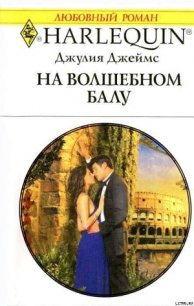Julia Ward Howe - Richards Laura E. (бесплатная регистрация книга TXT) 📗
On Christmas Day, 1859, she gave birth to a second son, who was named Samuel Gridley. This latest and perhaps dearest child was for three short years to fill his parents' life with a joy which came and went with him. His little life was all beautiful, all bright. We associate him specially with the years we spent at No. 13 Chestnut Street, Boston, a spacious and cheerful house which we remember with real affection. The other children were at school; little Sam was the dear companion of our mother's walks, the delight of our father's few leisure hours. For him new songs were made, new games invented: both parents looked forward to fresh youth and vigor in his sweet companionship. This was not to be. "In short measures, life may perfect be": little Sam died of diphtheritic croup, May 17, 1863.
This heavy sorrow for a time crushed both these tender parents to the earth. Our father became seriously ill from grief; our mother, younger and more resilient, found some relief in nursing him and caring for the other children; but this was not enough. She could not banish from her mind the terrible memory of her little boy's suffering, the anguish of parting with him. While her soul lifted its eyes to the hills, her heart sought some way to keep his image constantly before her. Her sad thoughts must be recorded, and she took up, for the first time since 1843, the habit of keeping a journal.
The first journal is a slender Diary and Memorandum Book. On May 13, the first note of alarm is sounded. Sammy "did not seem quite right." From that date the record goes on, the agonizing details briefly described, the loss spoken of in words which no one could read unmoved. But even this was not enough: grief must find further expression, yet must be repressed, so far as might be, in the presence of others, lest her sorrow make theirs heavier. This need of expression took a singular form. She wrote a letter to the child himself, telling the story of his life and death; wrote it with care and precision, omitting no smallest detail, gathering, as it were a handful of pearls, every slightest memory of the brief time.
A few extracts show the tenor of this letter:—
"My dearest little Sammy,—
"It is four weeks to-day since I saw your sweet face for the last time on earth. It did not look like your little face, my dear pet, it was so still, and sad, and quiet. But Death had changed it, and I had to submit, and was thankful to have even so much of you as that still face, for some days. Everybody grieved to part from you, dear little soul, but I suppose that I grieved most of all, because you belonged most to me. You were always with me, from the time you began to exist at all. The time of your birth was a sad one. It was the time of the imprisonment and death of John Brown, a very noble man, who should be in one of the many mansions of which Christ tells us, and in which I hope, dear, that you are nearer to Him than any of us can be....
"You arrived, I think, at three in the morning, very red in the face, and making a great time about it. You were a fine large Baby, weighing twelve pounds.... I have some of your baby dresses left, and shall hunt them up and lay them with the clothes you have worn lately.... I gave you milk myself.... I used to lay you across my breast when you cried, and you liked this so well that you often insisted upon sleeping in that position after you were grown quite large. It hurt me so much that I finally managed to break you of the habit, but not until you were more than a year old.... I had a nice crimson merino cloak made for you, trimmed with velvet, and lined with white silk. I bought also a very nice crochet cap, of white and crimson worsted, and in these you were taken to drive with me....
"During this first year of your life I had some troubles, and your Baby ways were my greatest comfort. I used to think: this Baby will grow up to be a man, and will protect me when I am old. For I thought, dear, that you should have outlived me many years. But you are removed from us to grow in another world, of which I know nothing but what Christ has told me....
"You used to keep me awake a good deal at night, and this sometimes made me nervous and fretful, though I was usually very happy with you. I would give a good deal for one of those bad nights now, though at the time they were pretty hard upon me....
"... Your second summer brings me to the winter that followed. It was quite a gay winter for us at old South Boston. Marie, the German cook, made very nice dishes, and I had many people to dine, and one or two pleasant evening parties. You still slept in my room, and when I was going to a party in the evening, Annie[47] used to bring my nice dress and my ornaments softly out of the room, that I might dress in the nursery, and not disturb your slumbers. I was always glad to get home and undress, and it was always sweet to come to the bed, and find you in it, sound asleep, and lying right across.... I learned to sleep on a very little bit of the bed, you wanted so much of it. This winter, I bought you a pair of snow-boots, of which you were very proud....
"We all got along happily, dear, till early in April (1863), when your father desired me to make a journey with Julia, who needed change of scene a little. So I had to go and leave you, my sweet of sweets....
"We were glad enough to see each other again, you and I, and I felt as if I could never part with you again. But I was only to have you for a few days, my darling....
"Thursday I sat up in your nursery, in the afternoon, as I usually did, with my book—you having your toys. When I had finished reading, I built houses with blocks for you, and rolled the balls and dumbbells across the floor to you. You rolled them back to me and this amused you very much. I go to sit up in your nursery in the afternoon now, with my book—the light shines in now as it used to do, and I hear the hand-organ and children's voices in the street. It seems to bring you a little nearer to me, my dear lost one, but not near enough for comfort."
The child's illness and death are described minutely, every symptom, every remedy, every anguish noted. Then follows:—
"It gives me dreadful pain to recall these things and write them down, my dearest. I don't do it to make myself miserable, but in order that I may have some lasting record of how you lived and died. You left little by which you might be remembered, save the love of kindred and friendly hearts, but in my heart, dear, your precious image is deeply sculptured. All my life will be full of grief for you, dearest Boy, and I think that I shall hardly live as long as I should have lived, if I had had you to make me happy. Perhaps it seems very foolish that I should write all this, and talk to you in it as if you could know what I write. But, my little darling, it comforts me to think that your sweet soul lives, and that you do know something about me. Christ said, 'This day thou shalt be with me in Paradise': and he knew that this was no vain promise. So, believing the dear Christ, I am led along to have faith in immortal life, of which, dear, I know nothing of myself.
"Your little funeral, dear, was bitter and agonizing. The good God does not send affliction without comfort, but the weeping eyes and breaking heart must struggle through much anguish before they can reach it...."
There was no hearse at this little funeral. The small white casket was placed on the front seat in the carriage in which she rode.
"We came near the gate of Mount Auburn, when I began to realize that the parting was very near. I now opened the casket, took your dear little cold hand in mine, and began to take silent farewell of you. And here, dearest child, I must stop. The remembrance of those last moments so cuts me to the heart, that I cannot say one word more about them, and not much about the life of loneliness and desolation which now began for me, and of which I do not see the end. God knows why I lost you, and how I suffer for you, and He knows how and when I shall see you again, as I hope to do, my dearest, because Christ says we are to live again after this life, and I know that if I am immortal, God will not inflict upon me the pain of an eternal separation from you. So, we shall meet again, sweet Angel Sammy. God grant that the rest of my life may be worthy of this hope, more dear than life itself....




